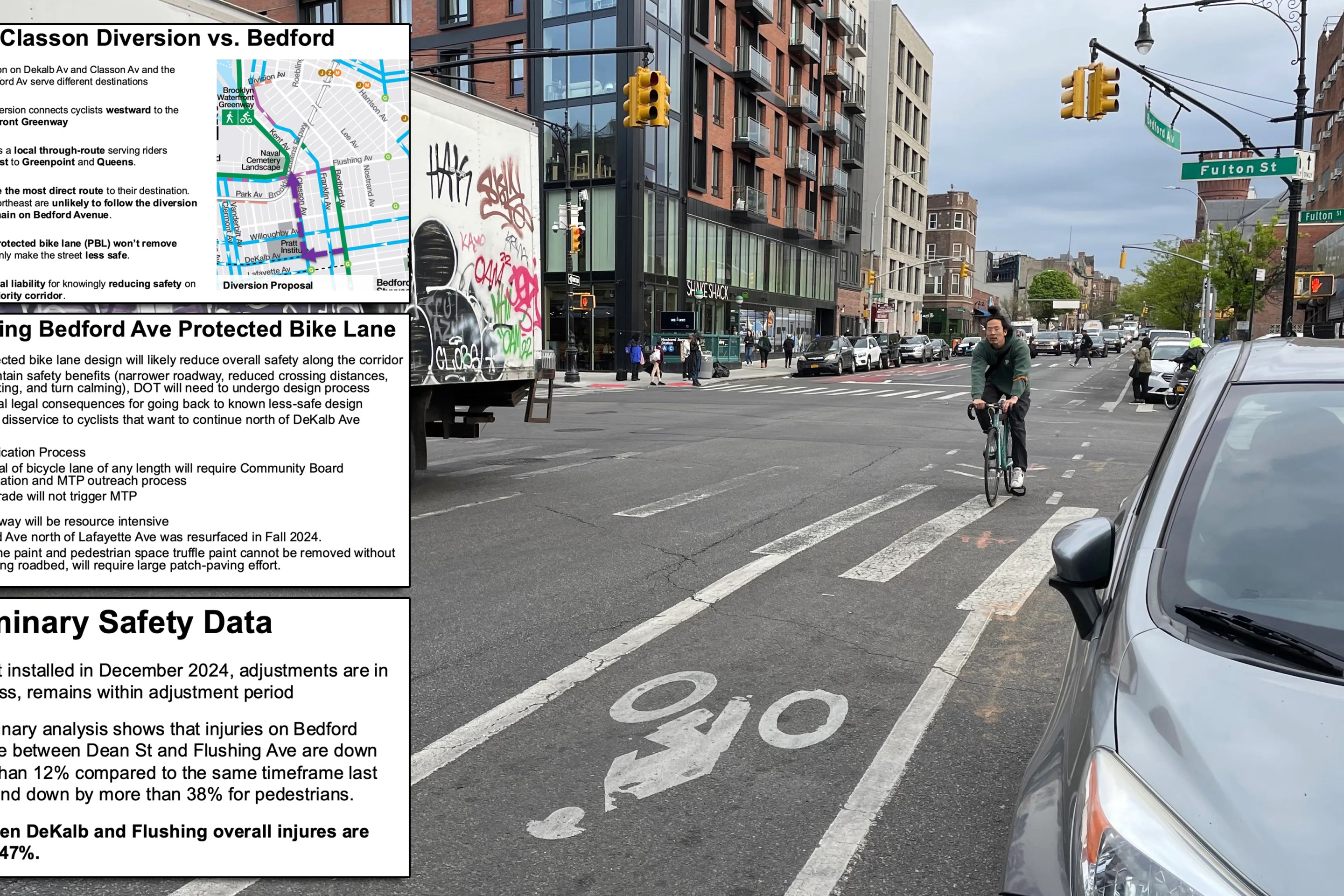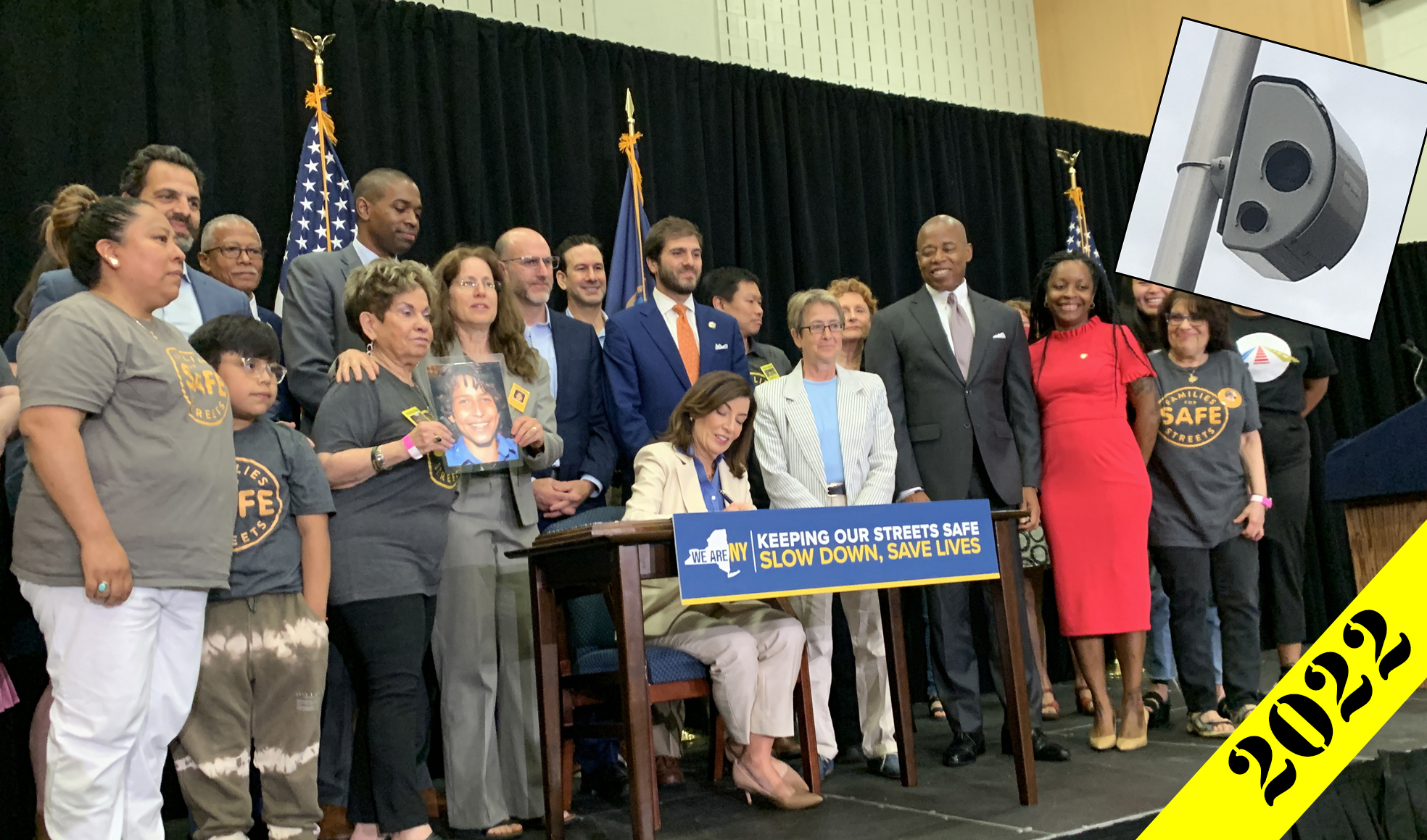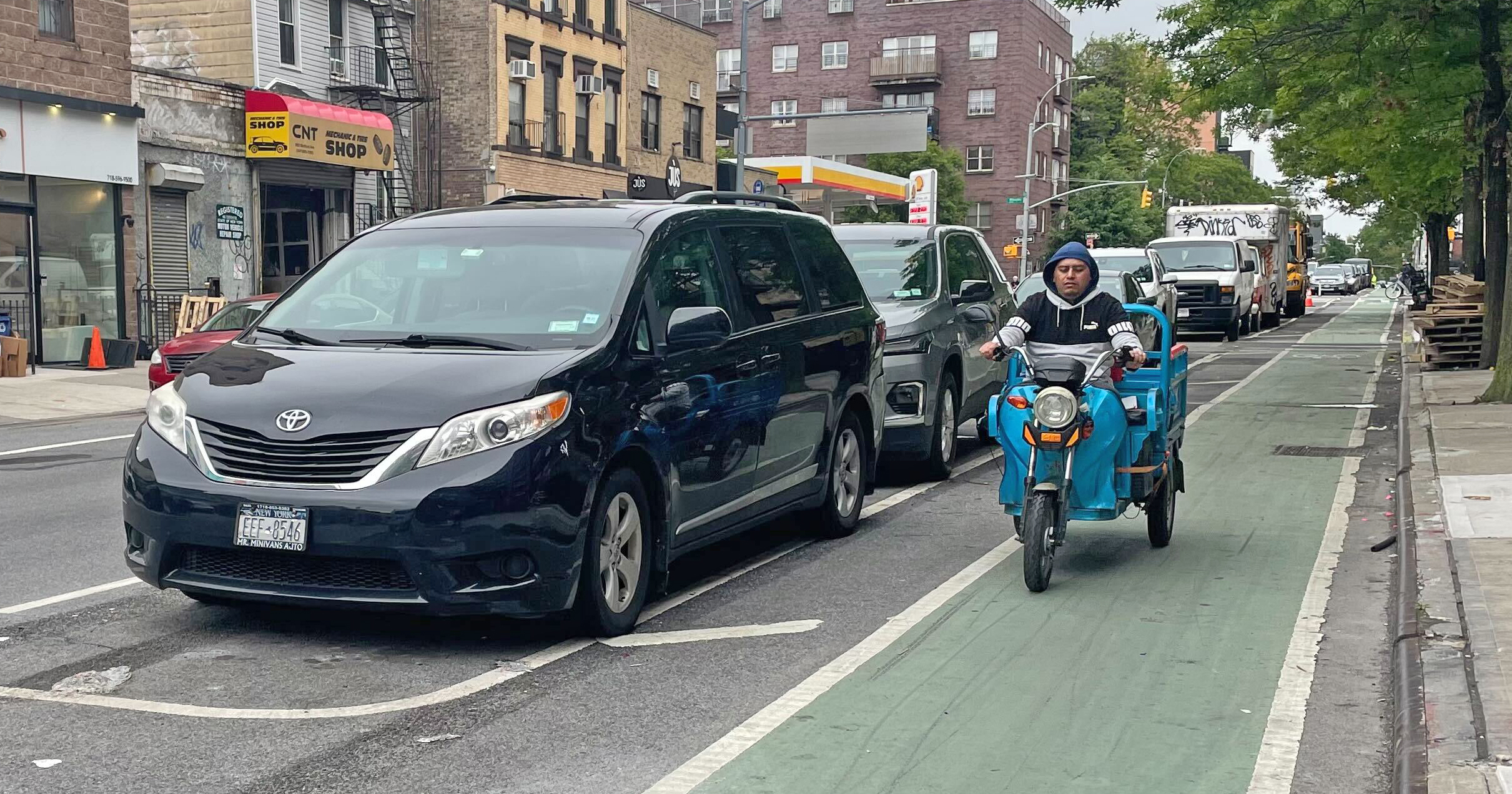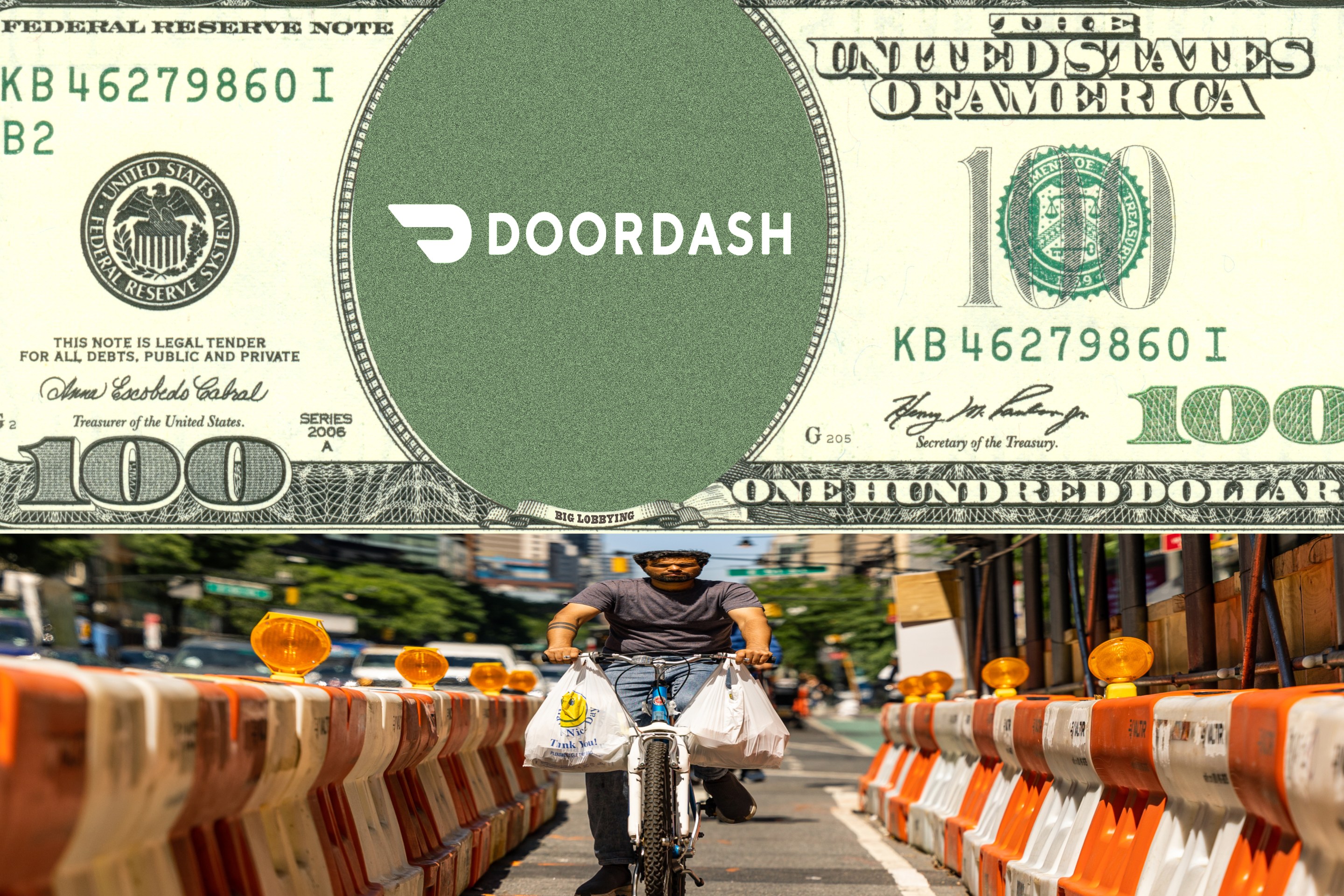Last Thursday, the New School hosted a panel discussion on the media and politics maelstrom that came to surround bicycling in New York -- and how, against some tough odds, supporters of safer streets came to beat the "bikelash."
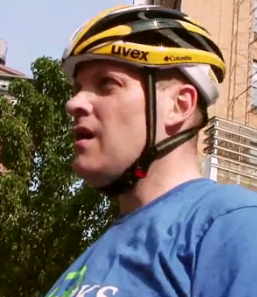
The panel, moderated by Shin-pei Tsay for her class of urban theory masters students, featured Deputy Mayor Howard Wolfson, Gothamist publisher Jake Dobkin, and journalist Warren St. John.
At the beginning of Bloomberg's third term, Wolfson said, some of DOT's highest-profile projects were being implemented and came to dominate how the public perceived the administration. "If you asked somebody in 2010 what Mike Bloomberg was up to, a lot of people would say, 'Oh yeah, he's doing bike lanes,'" Wolfson said. "I didn't necessarily think from a communications perspective it was totally useful to have us defined by any one thing."
It would have been easy for Bloomberg to see the political risks and back off. "We're not talking about the economy or public safety; this is an important issue but it's not the most important issue," Wolfson said of bicycling. But the mayor remained committed. "If you were going to pursue the policy, you couldn't walk away from the fight," Wolfson said.
Bloomberg's commitment to bicycling put Dobkin in the strange position of agreeing with the billionaire mayor. Most of Gothamist's employees bike to work, as does much of its readership. "Bike safety, not getting killed while you're riding your bicycle, having more bike lanes -- these are all things that we would just generically support," he said. "It was unusual for us being in solidarity with the Bloomberg administration, to find we were on the same side of the barricade on stories like the Prospect Park West bike lane."
But writing about bikes was also good for Gothamist's business. "There are certain stories in New York that hit at a nerve," Dobkin said. "There are these oppositions in our society: Young people versus old people, rich people versus poor people, people that drive cars versus people that don't. And somehow, bicycling touches every single one of them." It didn't take long for Gothamist to figure out that bike stories attracted eyeballs and wide distribution on social media.
"I think we play an intermediate role between social media and the mainstream media," Dobkin said. "Social media was pointing in the same direction in terms of widespread support for livable streets."
Amid the noise of social media, a network of informed and engaged supporters began to form, creating a counterpoint to the overwhelmingly anti-bike attitudes prevalent in the mainstream press. "It changed what reporters do," said Warren St. John, who left the New York Times in 2008 and became interested in street safety after having his first child and seeing a neighbor immediately after she was run over by a driver.
In real time, people were fact-checking the media and critiquing reporters’ points of view. "If you're a transportation reporter for the New York Times, you can't ignore this very loud conversation that's happening online that's criticizing your work," St. John said. Gradually, the city's mainstream press has shifted from opposition and derision to a more muted tone, if not outright support, St. John said.
The media was simply catching up with the public, Wolfson argued. Polls have consistently shown high approval numbers for bike lanes and bike-share, even as much of the press tried to tear them down. "You look at the streets now, and there's no way that the next mayor is gonna rip the bike lanes out. There's no way they're going to turn back Citi Bike. And now the question is: How much further are they going to go with the livable streets agenda?" Wolfson said. "Nobody is talking about reversing, whereas I think two years ago, three years ago...it would've been a reasonable question to ask."
Even with the shift in media tone, there will always be fights over change. "There's always going to be a noisy minority of people who oppose what you're doing," Wolfson said, mentioning Amsterdam Avenue and 125th Street as examples. "Change in New York doesn't really happen without someone becoming unhappy."
While Dobkin agreed with Wolfson's assessment, he said the Bloomberg administration could have done more to expand the bike network outside Manhattan and to change business as usual at NYPD, which continues to place street safety very low on its priority list. "We could always go further," Dobkin said.
During the question-and-answer session, I asked Wolfson how he reconciles DOT's transformative legacy for pedestrians and cyclists with NYPD's reluctance to address street safety.
Wolfson began by pointing to the city's dropping traffic fatality numbers, then turned to NYPD itself. "The police in the last year have changed the way they go about investigating these collisions," he said, adding that changing the name of the "Accident Investigation Squad" to the Collision Investigation Squad "reflects an expansive view of the mission." But as we found out at a City Council hearing on these reforms last month, NYPD has just started to scratch the surface of what's needed to prioritize the safety of walking and biking.
"Might the next mayor expand that even further?" Wolfson said. "Maybe, and you know, God bless the advocacy community for pushing the issue. There may be a different result in the next administration."
